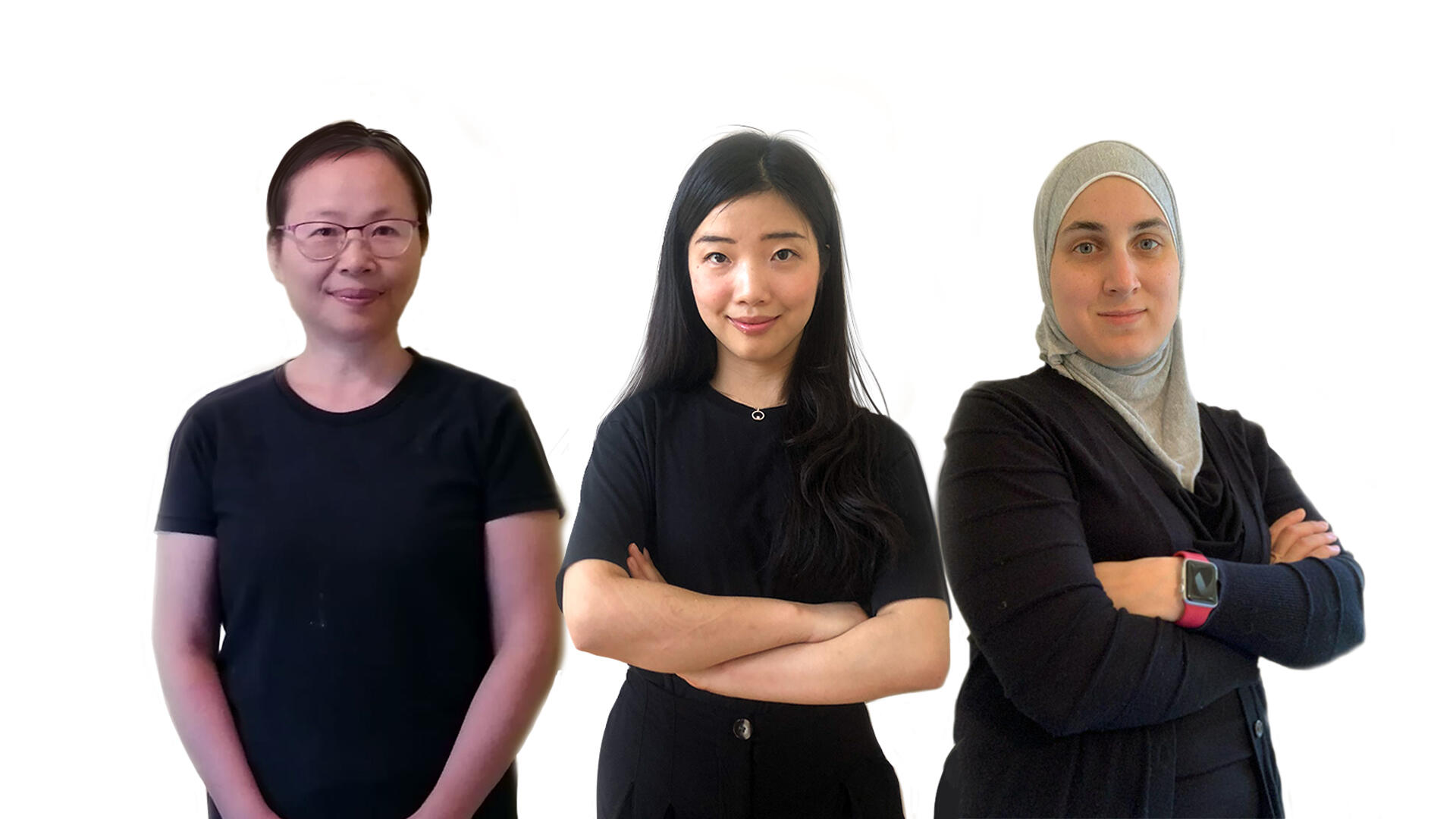Three Conestoga students won first place in a virtual hackathon hosted by Seneca College June 29 to July 3. The event involved more than 400 students who developed innovative solutions to address the problems businesses are experiencing as a result of COVID-19.

Three Computer Applications Development students finished in top place at Seneca College's COVID-19 hackathon. Pictured L-R: Katey Yu, Aileen Pou and Alaa Kabbani.
The “Pandemic Safe” team included Computer Applications Development students Alaa Kabbani, Aileen Pou and Katey Yu who developed a mobile application to enable decision makers to use COVID-19 data in order to save lives and make informed decisions. Joining them on their team was Seneca student Elizabeth Adenle.
“It was a great learning experience because you get to meet lots of different people and work really hard for a whole week to come up with some great ideas and receive helpful feedback,” said Kabbani. “It was overall a great learning experience and opened our eyes to how much you can learn in a such a short period of time.”
Their application uses a machine-learning algorithm to provide a range of projected COVID-19 cases for a specific geographic area and displays available health care supports. Key features include data visualization, integrated calendars to track locations of public events (including observation and enforcement of COVID-19 guidelines at those events), and a self-assessment tool that enables users to report symptoms they experience. The application can also journal the user’s COVID-19 testing history and results.
The Conestoga team won in their specific challenge set and finished in first place overall.
“Our systems analysis class last semester was a great help because it teaches you the steps to understand who your stakeholders are so that you can plan properly and design an app with the functions and features that will solve your problem statement,” explained Kabbani. “The main feedback we received was that the judges were very happy we were able to identify our stakeholders and the problem that needed to be solved and then create an app to address that problem.”
Earlier this year, Kabbani and Pou participated in Conestoga’s 4x4 Challenge and finished fourth out of 20 teams for Boost — a travel planning application that supports travellers with accessibility needs. The positive experience led the pair to Seneca’s COVID-19 Business Response Hackathon which took place during study week. Due to the COVID-19 restrictions, the team worked collaboratively in their remote settings.
“It took a bit more time to finish the work because we weren’t together, but we contacted stakeholders by phone and were able to connect with each other online and share our screens,” added Pou. “I was very happy when we found out we finished in first place, but it would have been nice to celebrate together as a team.”
As part of the hackathon, participants were mentored by industry professionals and also heard keynotes from Microsoft Canada, Sightline Innovation, the Toronto Product Management Association, Thinking North and Job-O.
The Computer Applications Development graduate certificate program is delivered through Conestoga’s School of Applied Computer Science & Information Technology and provides students with a broad business and technical background in computer applications, database applications, data communications, programming, data design and systems analysis and design.
